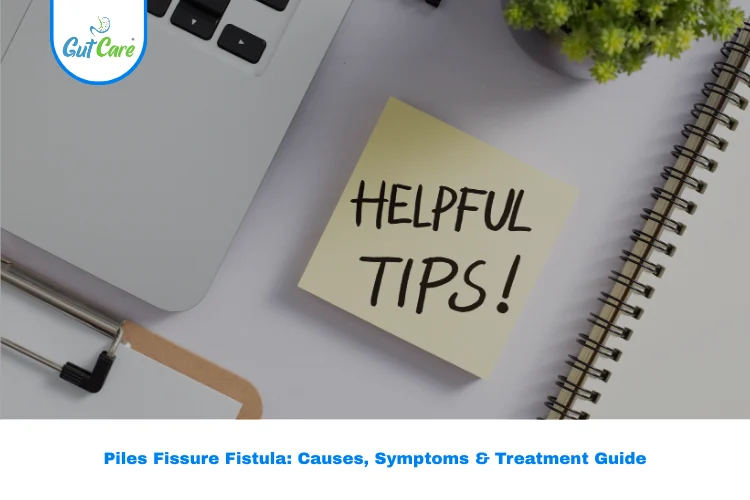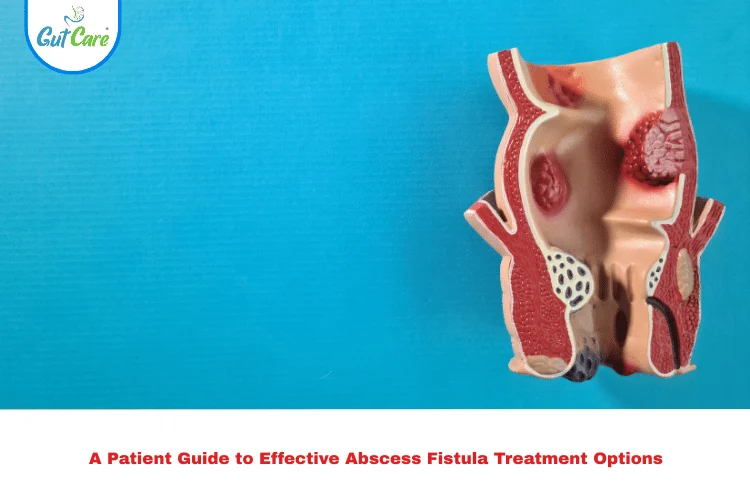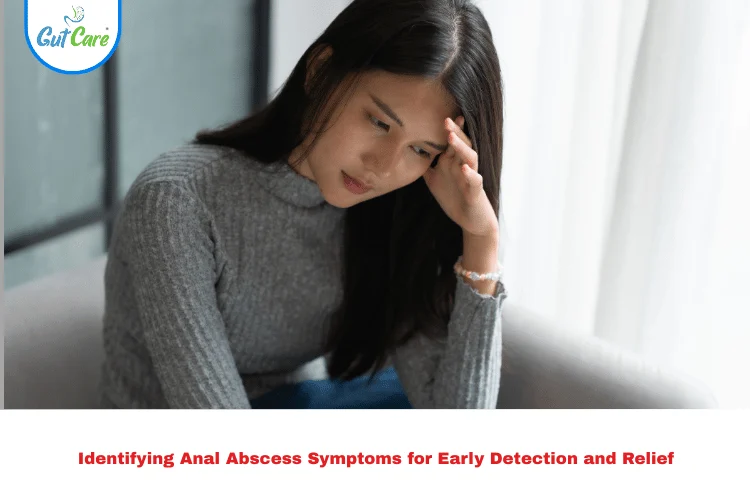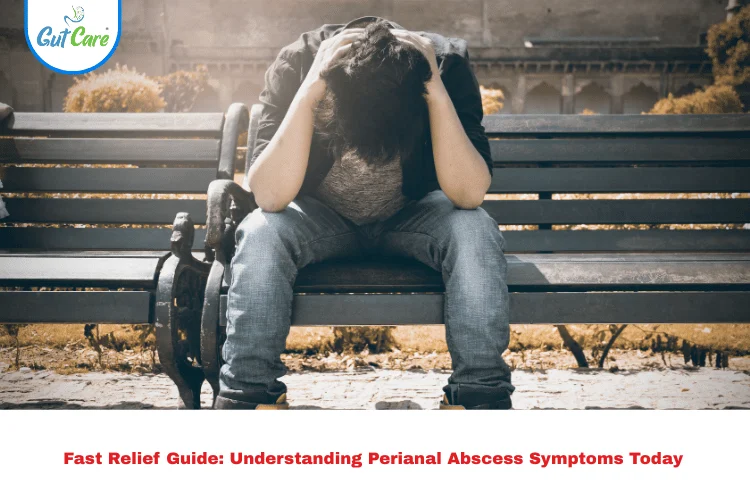Many people confuse piles, fissure, and fistula, but these are very different conditions. In this guide, we’ll explore piles fissure fistula in detail, explaining their causes, symptoms, and treatment options. By the end, you’ll understand how to identify each condition and why consulting a qualified specialist is important.
At Gutcare Clinics in Bangalore, under the guidance of experienced proctologists like Dr. Yuvrajsingh Gehlot, patients receive advanced care for piles, fissure, and fistula. Let’s break down the differences.
Difference Between Piles Fissure Fistula
Although they affect the same region of the body, these conditions are very different:
- Piles (Hemorrhoids): Swollen veins in the rectum or anus.
- Fissure: A small tear in the anal lining.
- Fistula: An abnormal tunnel between the anal canal and outer skin, usually caused by infection.
Understanding the difference between piles fissure fistula helps patients recognize symptoms early and seek timely treatment.
Piles Fissure Fistula: Common Symptoms to Watch Out For
Piles Symptoms
- Bleeding during bowel movements
- Swelling or lump around the anus
- Pain and itching while sitting
- Mucus discharge in some cases
Fissure Symptoms
- Severe pain during bowel movements
- Bright red blood on toilet paper
- Burning sensation near the anus
- Visible tear in the skin
Fistula Symptoms
- Constant pus or fluid discharge
- Redness, swelling, and irritation
- Painful recurrent abscesses
- Fever in case of infection
The overlapping nature of symptoms often leads people to confuse these conditions, but only a piles specialist doctor or colorectal surgeon can confirm the exact problem.
Causes of Piles, Fissure, and Fistula
The causes of piles fissure fistula may differ, but many are linked to unhealthy bowel habits and chronic conditions.
- Piles causes: Straining during bowel movements, pregnancy, obesity, and low-fiber diets.
- Fissure causes: Passing hard stools, chronic constipation, or prolonged diarrhea.
- Fistula causes: Untreated anal abscesses, infections, Crohn’s disease, or trauma.
Poor hydration, sedentary lifestyle, and delayed medical care can worsen all three conditions.
Best Treatment Options for Piles Fissure Fistula
Treatment depends on the severity of the condition.
Piles Treatment
- Home remedies: High-fiber foods, plenty of fluids, sitz baths
- Medications: Ointments, pain relievers, stool softeners
- Advanced options: Rubber band ligation, stapler surgery, laser treatment
Fissure Treatment
- Non-surgical: Sitz baths, topical ointments, stool softeners
- Surgical: Lateral sphincterotomy (for chronic fissures)
Fistula Treatment
- Antibiotics (for temporary relief)
- Surgical treatments: Fistulotomy, seton placement, laser-assisted closure
Modern laser surgery is now considered one of the best treatments for piles fissure fistula, offering quick recovery, less pain, and minimal bleeding.
Piles vs Fissure vs Fistula: At a Glance
| Feature | Piles | Fissure | Fistula |
| Cause | Swollen veins | Tear in anal lining | Infected abscess forming a tunnel |
| Pain | Mild to moderate | Sharp, severe pain | Persistent, throbbing pain |
| Bleeding | Common | Bright red | May or may not bleed |
| Discharge | Rare | Rare | Common (pus/blood) |
| Treatment | Lifestyle, meds, surgery | Creams, surgery | Surgery usually needed |
This table highlights the difference between piles, fissure, and fistula, making it easier to understand why each condition requires a unique treatment plan.
Prevention Tips for Piles, Fissure, and Fistula
While not all cases are preventable, healthy habits can reduce the risk of piles fissure fistula:
- Eat a fiber-rich diet (fruits, vegetables, whole grains)
- Drink at least 2–3 liters of water daily
- Avoid prolonged sitting on the toilet
- Exercise regularly to improve digestion
- Don’t ignore constipation or diarrhea
- Seek medical care early for anal pain or bleeding
The best prevention is early diagnosis and timely treatment from a qualified piles doctor in Bangalore.
Why Consult Gutcare Clinics in Bangalore?
- Team of expert piles specialist doctors and colorectal surgeons
- Led by renowned proctologist Dr. Yuvrajsingh Gehlot
- Advanced technology including laser treatment
- Patient-friendly care with faster recovery
At Gutcare Clinics, patients receive comprehensive treatment for piles fissure fistula under safe and modern settings.
Conclusion
If you experience symptoms of piles fissure fistula, don’t ignore them. Early diagnosis, lifestyle changes, and the right treatment can help you recover quickly and prevent long-term complications. For expert guidance, consult the best doctor for piles at Gutcare Clinics in Bangalore today.
FAQs on Piles, Fissure, and Fistula
1. What is the main difference between piles fissure fistula?
Piles are swollen veins, fissures are small tears, and fistulas are infected tunnels. A piles specialist doctor can diagnose the exact condition.
2. Who is the best doctor for piles in Bangalore?
At Gutcare Clinics, you can consult Dr. Yuvrajsingh Gehlot, a leading proctologist and colorectal surgeon.
3. Can piles fissure fistula be cured without surgery?
Mild piles and fissures may improve with medicines and lifestyle changes. However, fistulas usually require surgery.
4. When should I see a piles doctor in Bangalore?
If you notice bleeding, persistent pain, or pus discharge, it’s time to visit a piles doctor in Bangalore for evaluation.
5. Do Gutcare Clinics offer laser treatment for piles fissure fistula?
Yes, Gutcare Clinics in Bangalore specializes in advanced laser procedures that are painless, safe, and effective.




